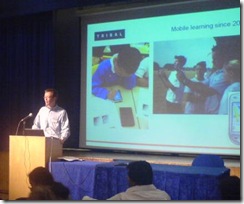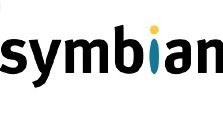In one of the worst kept secrets of the summer, the DCSF has announced a credit-crunch-beating £300m to buy laptops and broadband for the neediest kids in England.
Is this good news?
It is great news! Evidence is mounting that kids perform better at school if they can take some of that school work home, and share it with their families. Several recent reports seem to be converging on this from different perspectives:
- DCSF's Children's plan (benefits of access to technology at home)
- Byron report (on managing e-safety)
- Denham's consultation on Informal Adult Learning (drawing in the parents)
- Becta's Harnessing Technology (on how to use it well for learning)
From Extending Opportunity (the final report of the minister's taskforce):
Strong evidence exists for the potential educational, economic and wider benefits of home access to technology. Despite this growing body of evidence, approximately 35 per cent of families still do not have access to the internet and the digital divide is not being narrowed. It is clear that cost is a major barrier to access and, whilst costs of home access are falling, they will not do so quickly enough to prevent a large number of low-income families from being excluded from the educational and wider benefits of home access. This exclusion of low-income families results in an inequitable exploitation of home access and means that it is impossible for all learners and their families to experience these educational benefits without some intervention.
Needless to say, technology providers are already limbering up to promote their wares. It looks like families will be given vouchers they can spend on eligible technology and connectivity - though debate is already starting up on what types of devices should be included.
Is it just about "laptops"?
What about "mobile devices"?
How about games consoles?
Not sure about the answer - though as a mobile blog, our vote is with the "as many methods as possible" camp!














